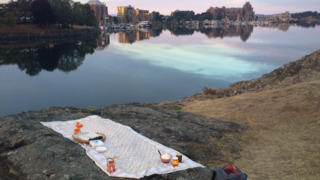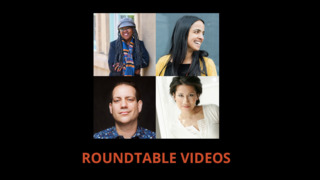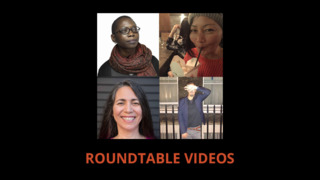IBPOC Artistic Practices
We know that Indigenous, Black and people of colour make art. What does that look like? Is it really that different than European-influenced art forms? What is the role that race, ethnicity and cultural background play in art practice?
These are knotty, complicated questions of identity. IBPoC artists, like other folks, are complex and cannot simply be reduced to one aspect of whom they are. Yet, it is critical to understand an artist’s work depending on their historical, cultural identities.
It is often said that art is universal, that all humans need to express something. There is truth in that statement. But that impulse to express is made manifest through cultural codes that are specific to what the artist - who is expressing - knows and understands. The idea that excellence in art is universal, that we know it when we see or hear or read it, is not actually true. Excellence is culture-specific.
We seek to expand knowledge regarding those specificities of the art works that are made in Canada - the historical cultures from which they spring; the art forms that come from those cultures; the codes that help a person from another background to at least begin to understand the work in its context and finally the development of evaluative frames - which differ from culture to culture - that allow us to be knowledgeably and critically discursive.
* NOTE: All nomenclature referring to racialized persons can be problematic. This naming can be incomplete, imprecise and it changes with the times. IBPoC is a contemporary term that refers to Indigenous, Black and People of Colour. Its origins are in the USA where the term is expressed as BIPOC. This formulation is sometimes used in Canada as well. We strive to consistently place ‘First Peoples first’, so we are using the Indigenous-first acronym - IBPoC.
The term ‘People of Colour’ has a long, somewhat contested, history going back over 200 years. The current usage stems from its 1970’s and 80’s renewal in the USA. It was revitalized - as a less insulting term for ‘non-white’ - as a way of describing all peoples who are racialized by white supremacy, and therefore who are subjected to racism. Significantly, it included Indigenous people who had been named as Native Americans in the territory known as USA.
In Canada, Indigenous people immediately rejected this conflation, not wishing to be included in the term ‘People of Colour’ nor even any notion of Canada’s Multiculturalism policies, for example, the top-down official expression of the Canadian government - visible minority.
Consequently, the more recent term IBPoC was created as a new formulation of these intertwined histories of racism. Black activists and academics have rightly insisted that the heinous history of the Atlantic slave trade to the Americas gives a resonance to Black histories that cannot be easily lumped in with the phrase, People of Colour.
it remains to be seen whether the PoC formulation will fall into disuse (just as the mainstream starts to be comfortable with it!) because other racial groups with specific, separate histories will also not want to be mixed together in this term. For now, IBPoC (or in the USA - BIPOC) has a potent currency.

Generating Knowledge
Belle Cheung
I’m never really sure if I should call myself an artist.
After all, I don’t really create with my hands, use my bod...

Generating Knowledge
Léuli Eshraghi
Long after, or the aftermath of colonies
Reflection on the round table “What is the Future of Artistic Practices?” w...

Generating Knowledge
Yara El-Ghadban
Where do artistic practices come from?
Round table as part of the Primary Colours/Couleurs primaires gathering
with...

Generating Knowledge
Valerie Sing Turner, Farheen Haq, Louis-Karl Picard-Sioui, Sylvia D. Hamilton
Participants of the PC/Cp 2017 Gathering were invited to join the roundtable to discuss a particular question that in...
.jpg)
Generating Knowledge
Andrea Monike Fatona, Skawennati, Ayumi Goto, Stefan St-Laurent
Participants of the PC/Cp 2017 Gathering were invited to join the roundtable to discuss a particular question that in...

Generating Knowledge
Greg Younging, Zab Maboungou, Jamelie Hassan, Alvin Erasga Tolentino
Participants of the PC/Cp 2017 Gathering were invited to join the roundtable to discuss a particular question that in...
Displaying all 6 projects